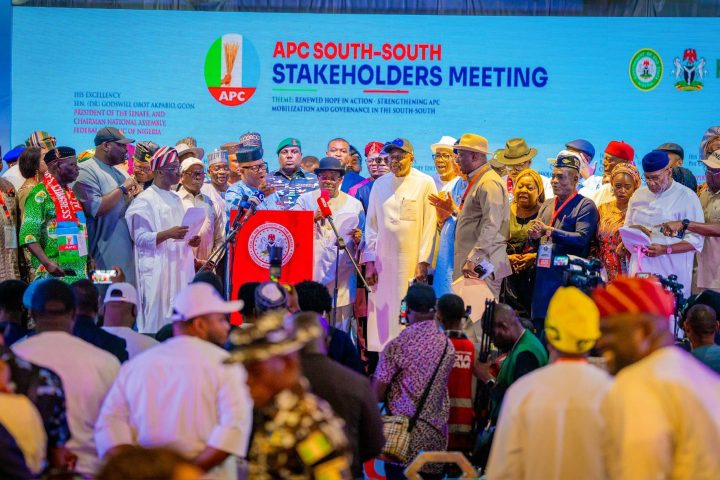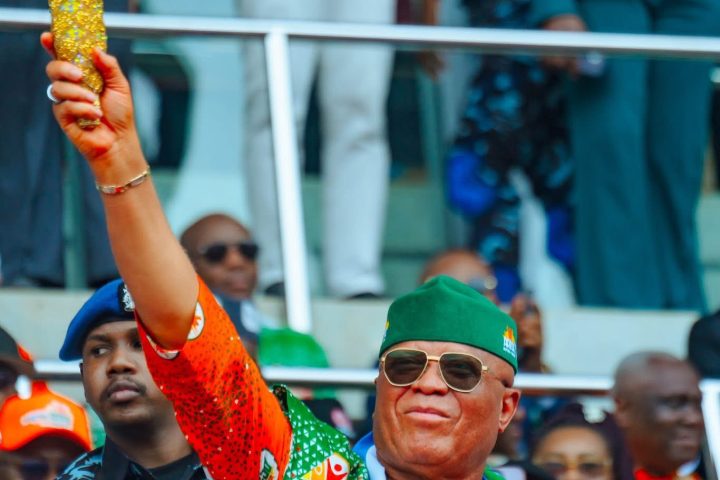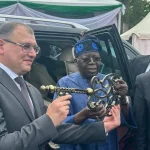It is not surprising to those who are familiar with the long-decided penchant by the Nigerian ruling class to deliberately kill Nigerian public universities through consistent underfunding since the mid-1980s. The economic challenges of the 1980s provided the opportunity to shackle the development of public universities across Africa. Prior to the economic crisis in that period, Africa can boast of four outstanding universities with an intellectual tradition and identity, distinct from the norm in other countries. These are Al-Azhar University, Cairo; Ahmad Bello University, Zaria; Makere University, Kampala; and University of Daressalam. Graduates from these institutions stood out for their intellectual perspective which gave them a distinct identity among universities globally.
The political ruling elite, after running the economies aground, chose to follow the script written and dictated to them by the International Monetary Fund (IMF), where the United States of America (USA), solely exercises veto power and the International Bank for Reconstruction and Development (IBRD), better known as the World Bank (WB). That template was anodyne to the economic crisis for all developing countries irrespective of the differences in contexts. The solution remained the same, embark on Structural Adjustment Progamme (SAP).
Join our WhatsApp ChannelIn summary, the economic programme designed to primarily serve the economic interest of Western countries further entrenched the dependency of developing countries and remain in the vortex of underdevelopment. It created wider markets for the West, collapsed industries in the developing world, worsened unemployment, enhanced poverty, decimated the local economies and ensured continued misery for the people.
One of the SAP prescriptions was to stop funding education, agriculture and health using the seemingly palatable language of “withdrawal of subsidy”. The ruling political elite readily complied with that neo-colonial shackle in the name of “liberalisation of the economy.” African countries have continued to reap the sharp edges of that economic destruction sword to this day. Despite the riots by the people against the cuts and bleeding from the SAP sword, the IMF/WB, unwaveringly insisted that was the “only option” for the revitalisation of African economies.
In 1986, Nigerian university students vehemently protested against this tunnel vision approach to managing the Nigerian economy. The State, under the control of a usurper military regime, responded by unleashing the Nigerian Police Force (NPF) to suppress the students’ agitation against the economic crisis. A panel investigated the “immediate and remote causes” of the students’ demonstrations. Mr. Emmanuel Abisoye, a retired Army General, led the panel and passed a curious verdict that the demonstration was a consequence of “university teachers, teaching what they were not paid to teach.”
It was a curious explanation against the reality of the debilitating effects of the economic crisis. Anyway, General Abisoye, consciously or not, had provided the AK-47 for the systematic destruction of Nigerian public universities. The ground for attacking academic freedom and university autonomy had been set. Indeed, ABU Zaria was to later, under a different pretext, come under the jackboot of erosion of university autonomy, by having not a vice Chancellor, but a Military Administrator, at the head of its academic and intellectual activities. General, yes, Mamman Kontagora served as the Sole Administrator in ABU Zaria.
The Nigerian ruling elite never bothered about the consequences of that thoughtless action on the Nigerian public universities. In fact, the same military regime imposed another Sole Administrator on the University of Maiduguri, at that time a distinguished academic in civilian garb, the late Professor (Emeritus) Umar Shehu. It was convenient for the regime to violate the autonomy of the universities. Not much has changed in terms of interference in the academic and administrative activities of public universities since then. It has not changed.
Having succeeded in imposing Sole Administrators to run public universities, the government under the pretext of the economic crises, resorted to underfunding education. Although the Nigerian economy was in difficulties, the ruling elite smarting from the historical role of Nigerian students as the conscience of the society readily seized the SAP word and committed itself to the allocation of less than 10% of the annual budget to education. This has been the trend since 1986! There is no inclination by the Nigerian authorities to prioritise education.
With this consistent conscious underfunding of education, the public universities started collapsing up to the point that committed Nigerian university lecturers, under the Academic Staff Union of Universities (ASUU), took the military authorities on and demanded for proper funding, expansion of spaces and facilities for teaching and learning. Using the economy as an excuse and mouthing uncritically the position of the IMF/WB that “government alone cannot fund education”. Although the government was forced to concede to the demands, it was done without any sense of honest commitment to the implementation of the agreement reached. This was what led to the continued strike in the public universities. The consistent bad faith, insensitivity and one may even assume irresponsibility, became what was described in a different context as “executive lawlessness”, the standard government’s response to the demands of ASUU for the revitalisation of public universities. Thought that the government succeeded in making the public perceive ASUU as the problem.
But the reality of the lackadaisical, dubious evasions, vacuous promises and dubious posturing and pretentious concerns has hit us with the recent exposure on ‘cotonisation of University Degrees’. Nigeria has a youth bulge which means that there is the reality of continuing demands for university education. The ruling elite never bothered about planning ahead by responding to ASUU. Instead, for many government officials, ASUU was seen and continues to be seen as the “nuisance of the Nigerian public universities.” Whenever a half-hearted attempt was made by the government to address the problem, they used deceptive language that the “government has given ASUU N30bn”; not the universities. By capitalising on the uninformed multitude, the government succeeded in painting ASUU as the problem. The uninformed will say: “What does ASUU want again”, “ASUU is being greedy”, “ASUU is selfish” and ASUU is wicked.” The conscious systematic destruction of public universities through failure to take appropriate actions at very critical moments by various Nigerian governments has created the present situation where the yearnings of large numbers of youths aspiring for quality university education cannot be met.
This is because despite acceding to establish TETFund, an idea proposed by ASUU and forcefully accepted through a strike, the public universities are nowhere near meeting their manpower, infrastructure, facilities and teaching staff needs. Nigerian public universities are still on the margins of competing with universities in parts of the world where the leaders are committed to quality public universities (and public education generally) in their countries.
Our neighbours: the Republics of Benin, Ghana, Togo and Niger were quick to recognise that there is a big market for university education from the large unabsorbed qualified Nigerian youth aspiring for university education. So, they created opportunities for Nigerian youth to get the opportunity of attending university and get largely market degrees, determined by money rather than knowledge. Maybe they also understand that government officials in Nigeria, at different levels, with the right greasing of palms, will turn a blind eye and allow both the good, the bad and the ugly to pass through the security and regulatory gates. Cotonisation of University Degrees is nothing new in Nigeria – many have successfully beaten the system from Benin, Ghana, Kenya, Niger, Togo, Uganda, etc. The Nigerian authorities have been awakened to the scratched surface of the problem. Attention must be paid to internal Cotonisation too by using a fine tooth comb to examine and extirpate similar “universities” operating in Nigeria.
The decades-long lack of governmental commitment to quality public universities has created a situation where government officials have succeeded in driving Nigerian students to other countries of the world, not just Africa in search of quality university education. But through that conscious neglect, they created conditions for the exploitation of our youth. Although it can be argued that most of those affected in this Cotonisation of university degree saga are themselves not innocent, it is the Nigerian authorities through governance compromises and labelling concerned and responsible citizens seeking a better and quality university education in Nigeria as the problem that should be blamed. Some of the government officials weaponised their offices to harm Nigeria in multiple ways. And this is one of them.
Nigeria, in this difficult and seemingly impossible moment of getting responsible, honest and committed public officials, needs to take up the challenge and undertake a radical institutional revolution to turn the affairs of the country around. Despite the deliberate undermining of public universities by people who seemingly choose to be happy serving foreign interests to the detriment of the country, some steps can be taken in the interest and benefit of Nigerians.
READ ALSO: NUC, UNILAG, Redeemer’s University, Others Denounce List Of Fake Professor
First and the most difficult to do for the local champions of neo-liberal economics holding positions of power and authority to do is to purge themselves of their inferiority complex that good/quality universities exist only in the West. They will find this difficult they have internalised and accepted their master’s narrative that they are inferior. For them, they must attend Western universities, their children must go to the universities in those countries too and need to be validated by the West as “qualified”, “experts”, “civilised”, “cosmopolitan” and “modern”. It does not matter to them that they got quality public university education from Nigerian universities.
Second, the Nigerian government needs to cultivate the consciousness that public universities deserve to be properly funded and monitored for optimum results. The reason for close monitoring is to ensure that public resources are properly managed and utilised for effectiveness, efficiency and economy. This is important because despite the provision in the law establishing the universities for the constitution and deployment of University Visitation Panels, every four years, the government has been consistent in failing to act in compliance with the laws until ASUU forces it through strikes.
Third, the government’s administrative machinery is sluggish as the officials that operate have cultivated a culture of inefficiency and ineffectiveness. This is exemplified in the failure to even acknowledge receipt of letters of grievance from tertiary education workers on critical matters affecting the institutions. Through their inaction, they help to create conditions for industrial disputes to occur and get prolonged unnecessarily. The attitude of the officials entrusted with this responsibility must change.
Fourth, the budget must be tied to specifics in the tertiary institutions for better results. It is unacceptable to just state allocations in the budget without tying them to specific expenditures. The tertiary institutions should be shielded from bearing the cost of “oversight visits” by the members of the National Assembly. That will help to ensure better “oversight visits.”
Fifth, the government should in its drive to earn revenue through public universities consciously ensure that they are fully equipped – better resourced in terms of staffing, lecture halls, theatres, laboratories, studios, workshops, hostels and municipal services – as to attract foreign students from which foreign exchange can flow into the country just as the Western countries are doing.
Sixth, public universities must remain the responsibility of government and must recognise and respect university autonomy, not as a burden or the narrow prism of financial autonomy without creating conditions for that to happen. It could happen if the government has faith in the quality of the Nigerian university system and research is consciously tied to industry to boost the national economy. There is a need for collaboration between Nigerian public universities, including all relevant tertiary institutions to partner with industry on R&D. Nigerian Private Sector Operators (PSOs) should be encouraged to patronise the innovations/inventions by Nigerian students for development and marketing to strengthen the economy. The challenge is whether the government will insulate this from politics, patronage and theft of public resources.
The failure to take these actions, which are not exhaustive, is the reason that Nigerian youths will be made victims, consciously or not of Cotonised University Degrees across the world. The universities must be allowed to flourish as ABU, Zaria did before it was, and all Nigerian universities were undermined from furthering their own intellectual culture and identity using the neo-liberal economic template that was used to deliberately impose funding starvation, among others, to halt the progress of Nigeria and many African countries.
Africa must never submit to Western dictations in managing the economy as it is never intended to benefit African people. Their SAP sword, as I said in a different writeup, was never conceived to make Africa develop; and no African country has become developed using the SAP economic template since 1986! Instead, it only succeeded in deepening the underdevelopment of African countries. If anybody knows of any African country that is developed today using the neo-liberal economic template, let them speak. For Africa, it’s still morning on creation day. Education is the liberation tool for Nigeria and Africa. Let us block the avenues for the Cotonisation of university degrees.
















Follow Us